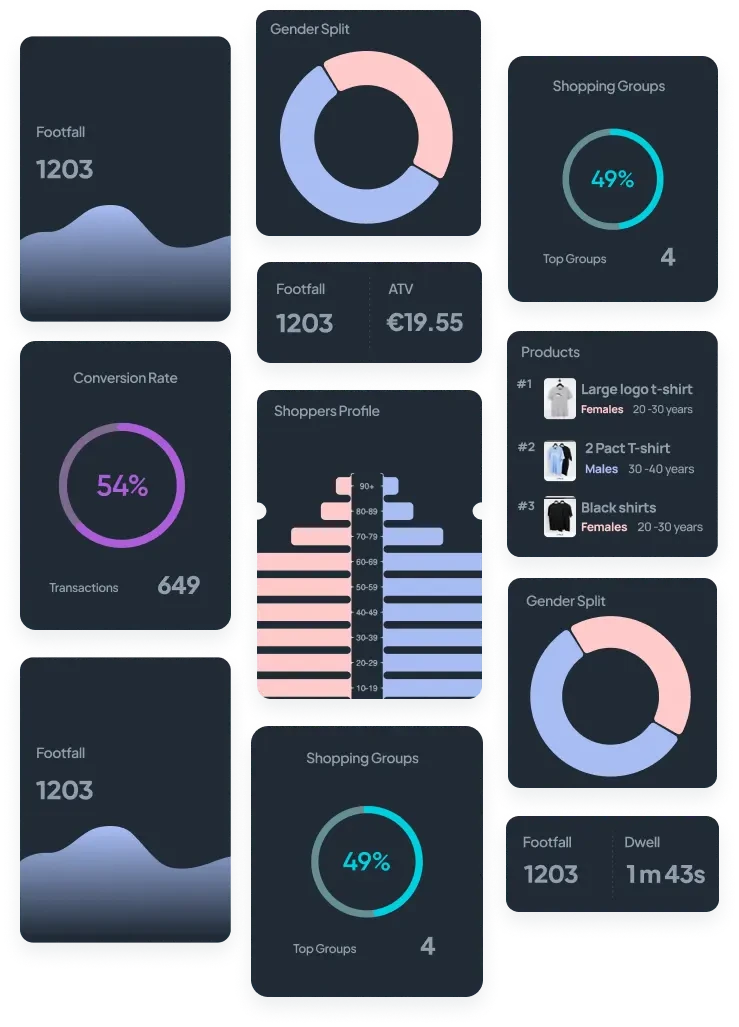In Europe, will we see more retailers putting items behind plexiglass?
Keith Monaghan
July 15, 2024
In the United States, there is now a trend amongst the likes of Target, Walgreens, and other grocery/pharmacy convenience chains to put items behind lock and key, using plexiglass barriers, to prevent petty and organised retail theft.
Anti-theft technology has been very prominent in the retail landscape over the last few years with the Retail Technology Show in London and the National Retail Federation in the U.S.A having many dedicated stalls showcasing anti-theft companies.
In the United Kingdom, 2023 was the worst year for shoplifting according to the Office for National Statistics, with more than 430,000 cases recorded. This is an increase of more than a third from the year before.
Paul Gerrard of the Co-op Group in a foreword to their report “Stealing with Impunity” stated
It doesn’t matter what data point you look at, which retail business you talk to or which retail worker you listen to, they will all describe a state of lawlessness on the UK High Street which has never been seen before; at times, many resemble the Wild West.
Point 4 in the report states that there has been diminishing confidence among retailers in the police response to crime, stating that “the British Retail Consortium found that 55% of respondents thought the police were doing a ‘poor’ or ‘very poor’ job in tackling and responding to the retail crime they experienced.” With statistics like this, it would not be surprising to see UK brick-and-mortar retailers adopt the US tactic of putting items behind lock and key.
But are plexiglass barriers the best form of anti-theft and how adversely are they affecting retail sales?
I’ve spoken to many retail operations teams who’ve told me that an effective anti-theft technology would be a top priority and must-have for all brick-and-mortar retailers, if there was a perfect solution on the market. Although, when considering any type of shelf lock option, there’s an additional burden on the floor staff to now operate as personal shoppers for any number of potential customers, simultaneously.
From personal experience, when I’ve been in supermarkets and browsed items like alcohol or shaving razorblades locked behind glass, I’ve very rarely approached a staff member to open the case for me, even if I actually am interested in purchasing the item(s). Usually, this type of security has led me to buy my whiskey from an off licence and my shaving razors from a pharmacy, rather than the supermarket.
Reports from US shoppers appear to back up my own personal view. Just weeks ago, Marisa Gerber in the LA Times, interviewed shoppers on locked up items. One particular shopper told Gerber that he “Had to wait 15 minutes for an employee to unlock a case” at a Target location. Amusingly, the shopper finished their interview by saying “I’ll just give Daddy Bezos my hard-earned cash”.
How drastically does theft need to be occurring for a retailer to want to consider plexiglass barriers?
Joe Budano of Indyme, a San Diego based retail security company, stated that “Inevitably, anything that adds to “the friction to the buying process will reduce sales”, a point commonly echoed around retailers globally and especially by shopper scientist, Herb Sorensen. In his 2009 book, Inside the Mind of the Shopper. Sorensen famously stated that “Shoppers are spending more than money in the store. They are also spending time and racking up angst.”
James Klug, an American retail commentator, noted in 2021, that when his local Walgreens in San Francisco installed plexiglass security, the staff reported that retail theft in that store had been reduced from an average of 50 times per day to 6 times per day.
Whether or not shoppers in the United Kingdom will see more items being locked behind glass or encased in plastic protective shields really goes back to the Co-op Stealing With Impunity report. If the law isn’t in a position to assist retailers in protecting their goods, then retailers will do whatever makes the most sense to protect it themselves.
Sean Poulter and Dominik Lemanski in a September 2023 Mail Online article wrote that “Generally, officers do not attend and prosecute reports of shoplifting if the value of items taken is below £200.” Because of this we are now seeing “everyday essentials such as washing powder, milk, baby formula, butter, laundry gel and coffee” being placed behind protective barriers.
From research Lemanski and Poulter gathered, centring around London boroughs in particular, “it emerged that home furnishing store, Dunelm, is locking up its duvets and pillowcases in pin-protected cabinets” and “Iceland stores now have rows of roasting joints, Persil and other laundry products in security cases.”
Until a better method of protecting goods comes along, it seems that the lock-and-key plexiglass method may become more appealing to retailers as it is clearly the most effective anti-theft “technology”. Whether its use can be justified against overall loss of sales and decrease in shopper satisfaction is another story, and one for retailers to consider.
Get Started
What Gets Measured, Gets Managed!
VisionR mines data directly from shoppers as they navigate stores, empowering retailers with real-time insights to maximise their decisions & revenues.
